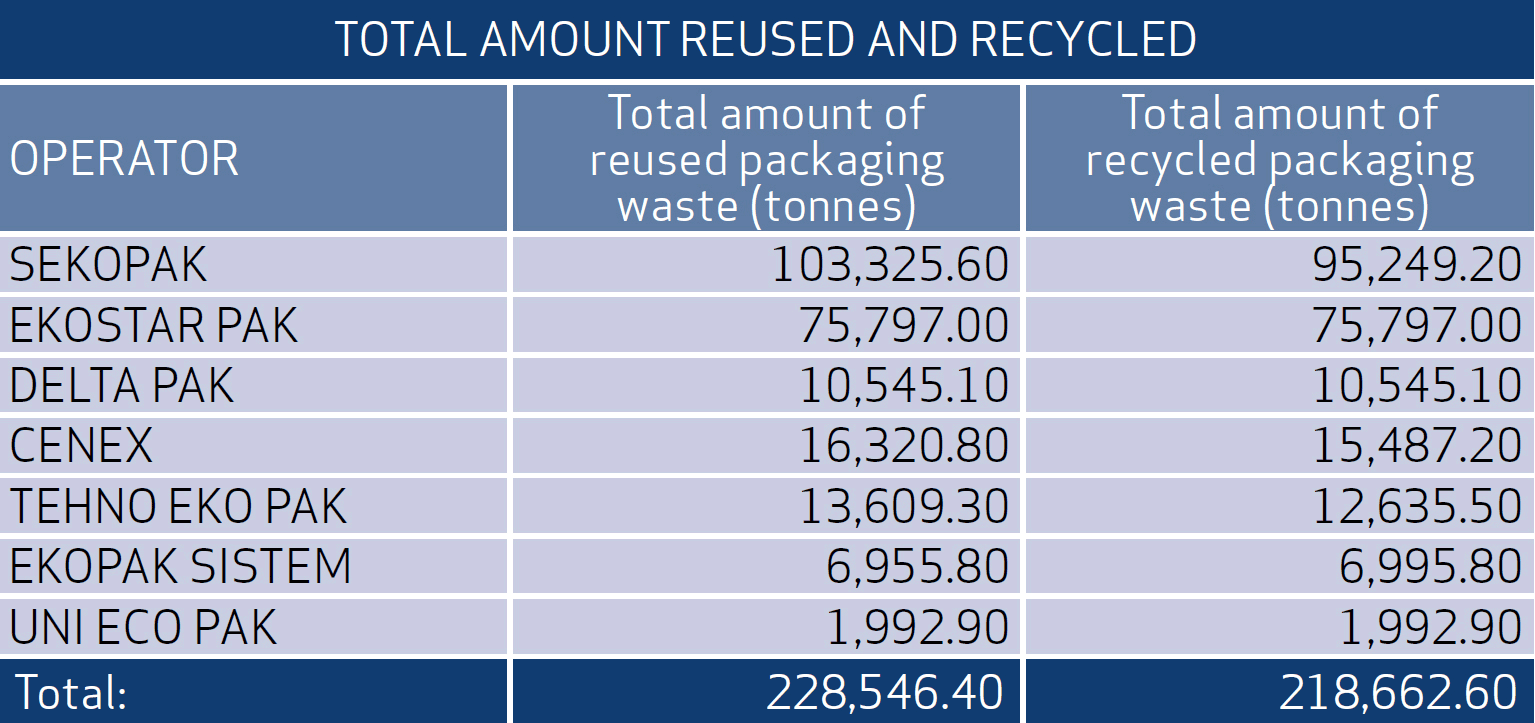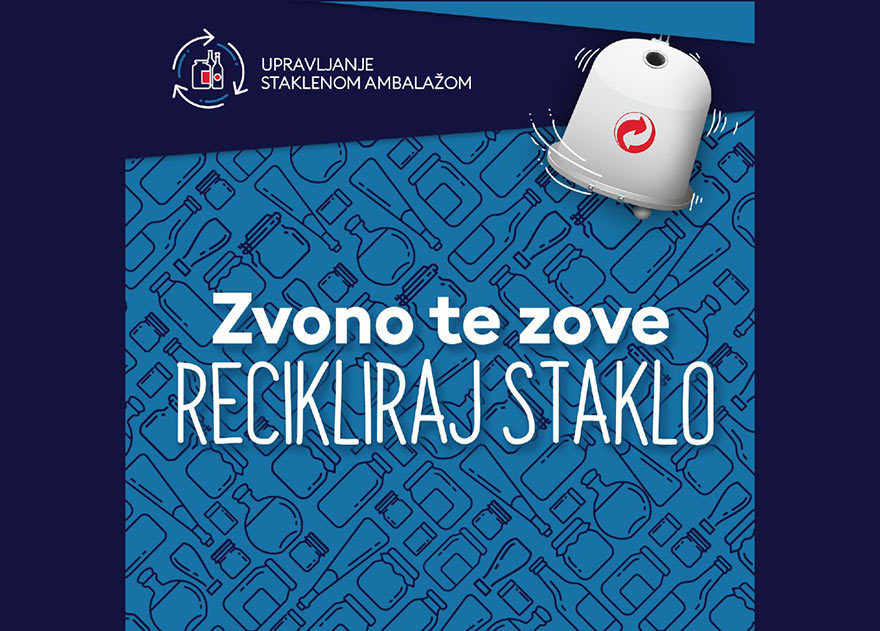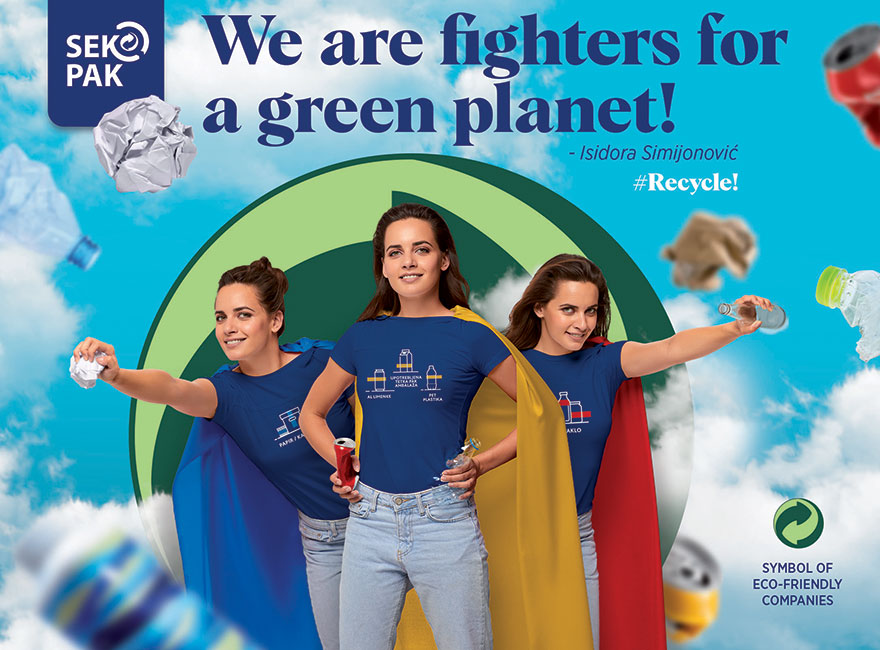Since the adoption of the Regulation governing the management of packaging and packaging waste, Sekopak has been the only company in Serbia to have exceeded the figure of 100,000 tonnes for the reuse of packaging waste. This company has achieved a leadership position through its knowhow, devotion and optimism
Citizens increasingly recognise the importance of caring for the environment, and Sekopak offers them content that prompts them to reconsider their attitude towards waste. Also serving this end are the company’s educational campaigns through digital channels and door-to-door campaigns that serve to educate citizens through direct contact.
How does one become a leader in the packaging waste management industry?
– With its great commitment and effort in the field of packaging waste management, Sekopak has developed and grown with its clients and associates.

Our development has implied listening to the needs of the market and adjusting to meet all the requirements that are demanded of us from the turbulent market in Serbia. Thanks to the commitment and optimism of Sekopak employees, we have achieved exceptional results, which has propelled us to a leadership position on the market for the last five years.
We succeeded in collecting and submitting more than 100,000 tonnes (100kt) of packaging waste for recycling last year, which represents almost half of the total collected and recycled quantities reported to the Environmental Protection Agency. I believe that the recipe for success is a good selection of employees, because they are the greatest wealth a company can possess, as well as a good selection of reliable partners. For Sekopak those partners are collectors with whom we’ve spent many years building a successful network for the collection of packaging waste in Serbia.

When will we see the launch of the project for managing glass packaging in Niš and Sombor, which you worked on together with GIZ and NALED? How much progress has been made on installing infrastructure for disposing of packaging waste?
– We’ve already launched this project and to date the first phase has been implemented. It implied the scanning of cities to determine the number of containers to be installed, as well as the selection of a team of experts who will work with us on the project. It remains for us to procure containers and start installing them in cities by year’s end.
The emphasis in 2021 will be on actively educating citizens and measuring results, alongside optimising the process of collecting glass packaging waste. This is a project that will help us a lot in the future as a guide – on how to install infrastructure, determine the real possibilities and take the best approach to Serbian citizens to ensure they carry out the primary selecting of packaging waste.
We organise door-to-door campaigns that include paying visits to the population and educating them through direct contacts
To what extent has the Coronavirus Pandemic hindered you in implementing the activities and projects that you’d envisaged for this year?
– The Coronavirus Pandemic didn’t hinder us in our daily activities, because we quickly accustomed ourselves to new ways of working. Collectors showed themselves to be very reliable partners, with collections carried out without hindrance even during the state of emergency, which is very important. Thanks to our shared timeliness, continuity in the collecting of packaging waste was not brought into question. At the same time, we complied fully with prescribed protection measures and adjusted our work to the conditions. During the period of the state of emergency, the team was divided into groups of two each, with duty shifts set at once a week. And once the state of emergency was lifted the entire team was split into two groups that are on duty every other day.

You’ve spent years organising a CO2 conference at which you award certificates to companies for making savings on CO2. Will that conference be held again this November?
– Unfortunately, as a consequence of the situation caused by the coronavirus outbreak, we cannot organise our traditional annual conference, but we have prepared certificates and will send them to all clients. Reason to celebrate certainly exists. We’ve managed, together with our clients and partners, to make savings of 62,519 tonnes of CO2 in 2019, which is 110% more than in 2018. When it comes to Serbia as a whole, thanks to the system of extended responsibility for manufacturers, savings amount to 85,654 tonnes of CO2
How can we bring the topic of recycling closer to citizens? Should campaigns shift to digital channels?
– We are increasingly using digital channels to communicate with and educate the population. This form of promotion has proven particularly effective during this time of the pandemic. Citizens are increasingly recognising the importance of caring for the environment, and we provide them with content that prompts them to reconsider their relationship towards waste. However, we must take into consideration that a good part of Serbia’s population doesn’t use social networks and likes to be spoken to in person. That’s why we organise door-to-door campaigns that include paying visits to the population and educating them through direct contacts. This approach has yielded exceptional results and we will resume door-to-door campaigns once the situation stabilises with regard to the coronavirus outbreak.
